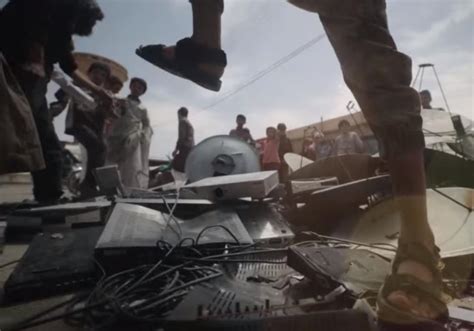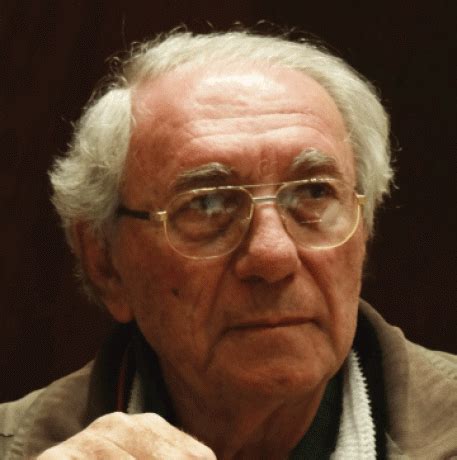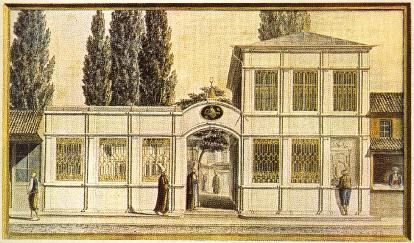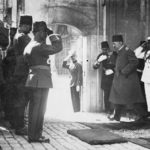
Arab Islamic societies experienced the difficulties of opening up to a contemporary human-focused culture following a near total isolation that lasted virtually nine centuries, without their participation in global human endeavour. The opening up process took place in the absence of a contemporary identity or any logical mechanism for dialogue. These societies therefore began to import things that were alien to them and were doing so without the capacity to subject them to scrutiny.
THE FIRST HALF of the 20th century was spent in attempts to imitate Western modernity on a number of levels. This period was tantamount to a phase of dazzlement and fascination with the West and its achievements and in the clash of cultures this phase is termed the ‘honeymoon stage,’[1] a stage which is destined not to last. In the dazzlement stage the traditional dressing was dispensed with, cities and building methods underwent change, social customs and even grammatical constructions were altered, along with a great many other things that had languished undeveloped during the course of this tunnel in time. The dazzlement period was followed by other diverse stages in the clash of culture, and these societies are still living through this period of clash. Such was on the international level, but on the level of society the post-regression phase still leaves its deep marks on constructive and destructive processes, on the processes both of experimentation and resignation, alternating between opening up and closing in on oneself, between fundamentalism and contemporaneity, between alternative stages of stability and instability in the absence of a clear identity. All these are features of the serious cultural clash on the level of society. For, to be sure, the seriousness of society’s cultural clash has passed beyond just these societies and is having an effect on a global level.
During this phase Arab Islamic societies experienced the difficulties of opening up to a contemporary human-focused culture following a near total isolation that lasted virtually nine centuries, without their participation in global human endeavour. The opening up process took place in the absence of a contemporary identity or any logical mechanism for dialogue. These societies therefore began to import things that were alien to them and were doing so without the capacity to subject them to scrutiny. They imported foods and medicines, sciences and political methods, methods of state governance, education and construction, yet were not capable of themselves offering anything to this new world. They are also living through a phase of new, imported experimentation, with all the possibly unwanted results than can be generated by expectations concerning this experimentation.
The Arab Islamic slumber constitutes a strange case in the history of human society
Arab Islamic societies are unique societies for their having passed into an almost nine-century long historical slumber. They are not primitive societies without a cultural history. The slumber of primitive societies is a natural extension of their primitiveness, but the Arab Islamic slumber constitutes a strange case in the history of human society. And what is equally strange is that contemporary Arab thought, which often supports projects for resurgence and modernisation, is failing to make an attempt at studying this historical discontinuity and its causes so that the reconstruction might proceed in a proper direction proceed upon a sound footing. Arab thought still looks upon this discontinuity as a natural phenomenon, whenever it is not actually casting the blame on historical events and on other peoples. Alternatively it might be seeing this discontinuity as something not deserving of study or examination. Self-criticism and the diagnosis of flaws and points of weakness are features of scientific endeavour, and lie at the heart of development and continuous modernisation. Arab Islamic thought, on the other hand, is still far removed from any of this and looks on it as an intellectual fashion. In contemporary Arab history Arab thought in general (with the exception of individuals) has been left confused by its many serious discomfitures, not actually knowing whether these constitute defeats or triumphs. The problem of self-criticism is a contemporary Arab phenomenon, and is no different from any other problem that comes with dealing with something imported.
Ever since the fall of the Muʽtazila (that is, the fall of reason), and during the course of the past century, these societies have had no source for their culture and social education other than the mosques and tekkes[2]. Even the sciences which were known during the period of the early Islamic resurgence have, since the 12th to the beginning of the 20th century, been forgotten or neglected. During the Dark Ages Europe experienced many and various intense intellectual struggles while Arab Islamic societies did not experience any such struggles during its own obscure eras. Religious and social education, directed by religious thought, aims at nothing else than praising and glorifying God and the ruler, and accepts direction unquestioningly. Mosques and places of worship were, and still are, the source of basic knowledge in society through their sermonizing, counselling and guidance. Some schools in a number of larger cities did make their appearance in the 19th century but these were very simple affairs, limited in number and devoid of any influence whatsoever over society.
The mindset wavers between mythologies, traditions and inept attempts at modernisation
No wonder, then, that religious thought was able to maintain its control over these societies over these long centuries. Religious thinking came to penetrate into everything and as a result those doing the penetrating were the ones exercising intellectual dominion – the religious scholars – since there were no other classes of scholars in these societies.
These societies passed through centuries without any intellectual debate or cultural cross-fertilisation, and it is therefore hardly strange that the prevailing mindset now wavers between their mythologies and traditions and inept attempts at modernisation. Many Arab and Islamic studies have attempted to cast light on the nature of contemporary thinking and these studies depend on analytical schools that deal with the issue in various ways. Examples are Sadik Jalal al-Azm’s Critique of Religious Thought or the collection of studies by Ali Zayour – A Psychological Analysis of the Arab Self. Indeed there are very many such studies. Whatever the difference in intellectual approach all these studies point to the contradictions and conflicts which these societies are experiencing. One of the most outstanding studies ascribing the behavioural fractures in Arab society to the prevailing mindset is Sadik Jalal al-Azm’s Self-Criticism After the Defeat.[3] In this book he casts light on the behaviour that arises in society from a mindset that has led to the military defeat of 1967 (in fact was a series of military defeats) and all the setbacks encountered in daily life. In this book he makes use of his previous research, and if he lays out in his work Critique of Religious Thought a number of analytical viewpoints, here it is the prevailing religious mindset that plays the fundamental, pivotal role in the issue. Even so, after almost half a century since the book’s publication, the mindset of the society continues to stagnate.
Today the prevailing Islamic social mindset is a legacy of a thinking that dominated their societies for the last ten centuries. This dominating mindset has been unable to push these societies beyond its framework of religious practices and intellectual self-isolation, and is responsible for the grievous cultural setbacks of the past centuries. During this time political and intellectual structures failed to take shape or evolve in a way that could develop society. For this reason it is the deep-rootedness of this mindset that is furnishing contemporary political movements with the foundations the masses are adopting. With the incapacity of this thinking to go beyond its potentials, those societies which have been rooted in them for centuries find it difficult to go beyond this thinking, since it provides the framework for the way it thinks and behaves.
In the same way that cultural development highlights many advances in various areas of life, cultural regression likewise highlights the many intellectual deviances and deep-rooted aspects of backwardness in various areas of the life of this society. If cultured societies are able to export their advances with ease due to the fact that these achievements are accepted and wished for, cultural backwardness is incapable of exporting anything other than their failures and problems.
The capacity for building is there, but it needs a new mindset
A thinking that has been incapable of building its societies over the centuries is certainly even less capable of doing so now. The accumulation of contemporary civilisation has reached a point of complexity that would make it difficult for those who have been outside it for years to rejoin it, so one can imagine the problem for those who have never even known about it. The post-regression phase which commenced after the First World War has witnessed sharp reverses and fitful construction, but these are nothing but difficult experimental stages which will necessarily lead to the end of regressive thinking. Due to their mindset these societies have squandered centuries of their lifetime without achieving anything, and they remain hesitant and dithering in their attempts at resurgence. This is because resurgence can only be led by rationality, and for as long as that rationality remains absent resurgence can have no meaning. Given that rationality is a force that cannot be strangled out of existence in our contemporary world, the phase of reason’s absence simply cannot continue for long. The capacity for building is there, but it needs a new mindset and a new receptiveness on the part of society.
[1] Oberg, Dr. Lalervo, “Culture Shock and the problem of Adjustment to the new cultural environments”, World Wide Classroom Consortium for International Education & Multicultural Studies, 29 Sept 2009.
[2] Tekkes, ribats, zawiyahs or ‘khanqahs’ are lodges for Sufistic mystical brotherhoods, often focused around the shrine of a saint. (Ed.)
[3] Sadik al-Azm, Self-Criticism After the Defeat, Saqi Books, London, November 2011.



